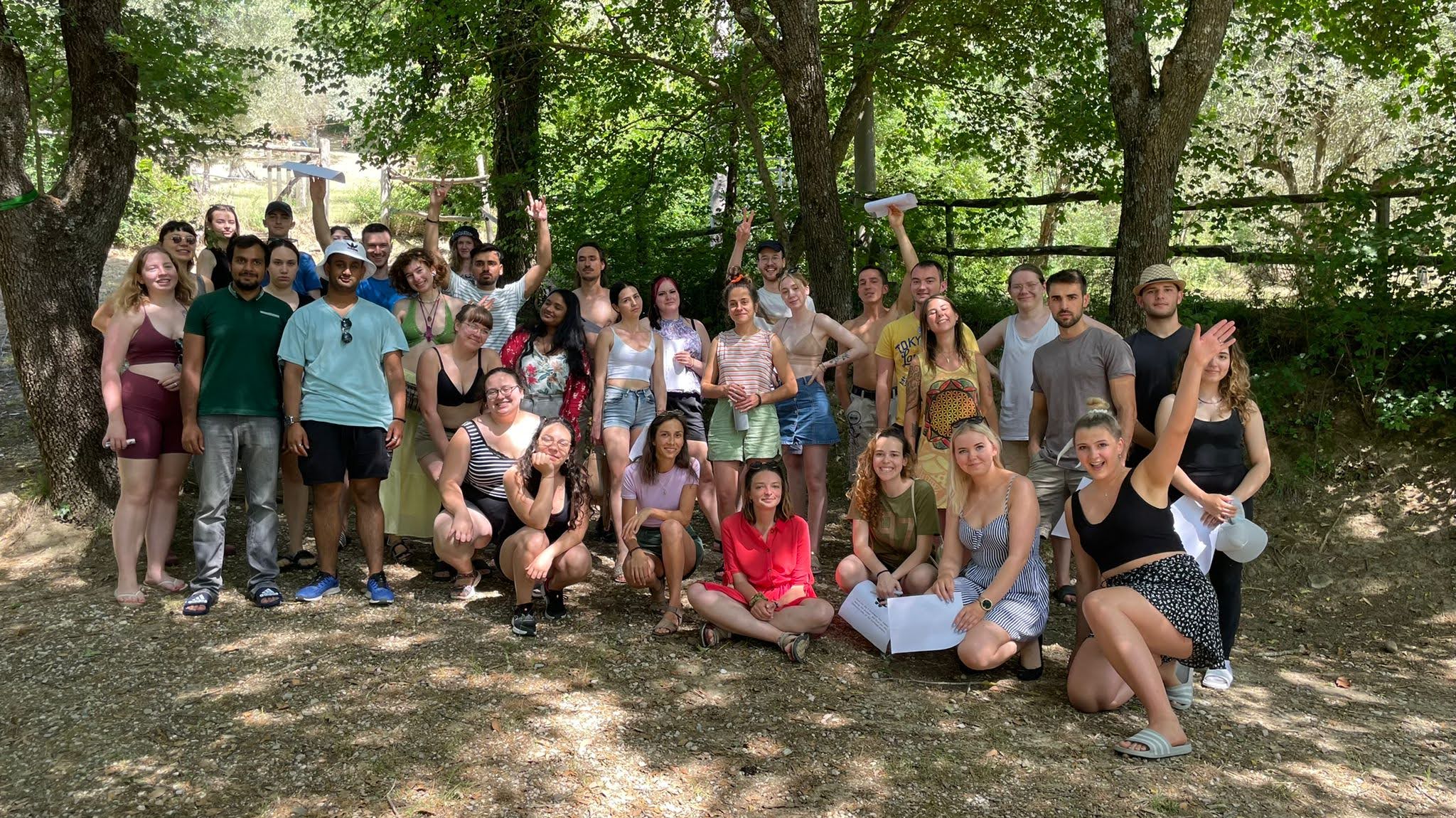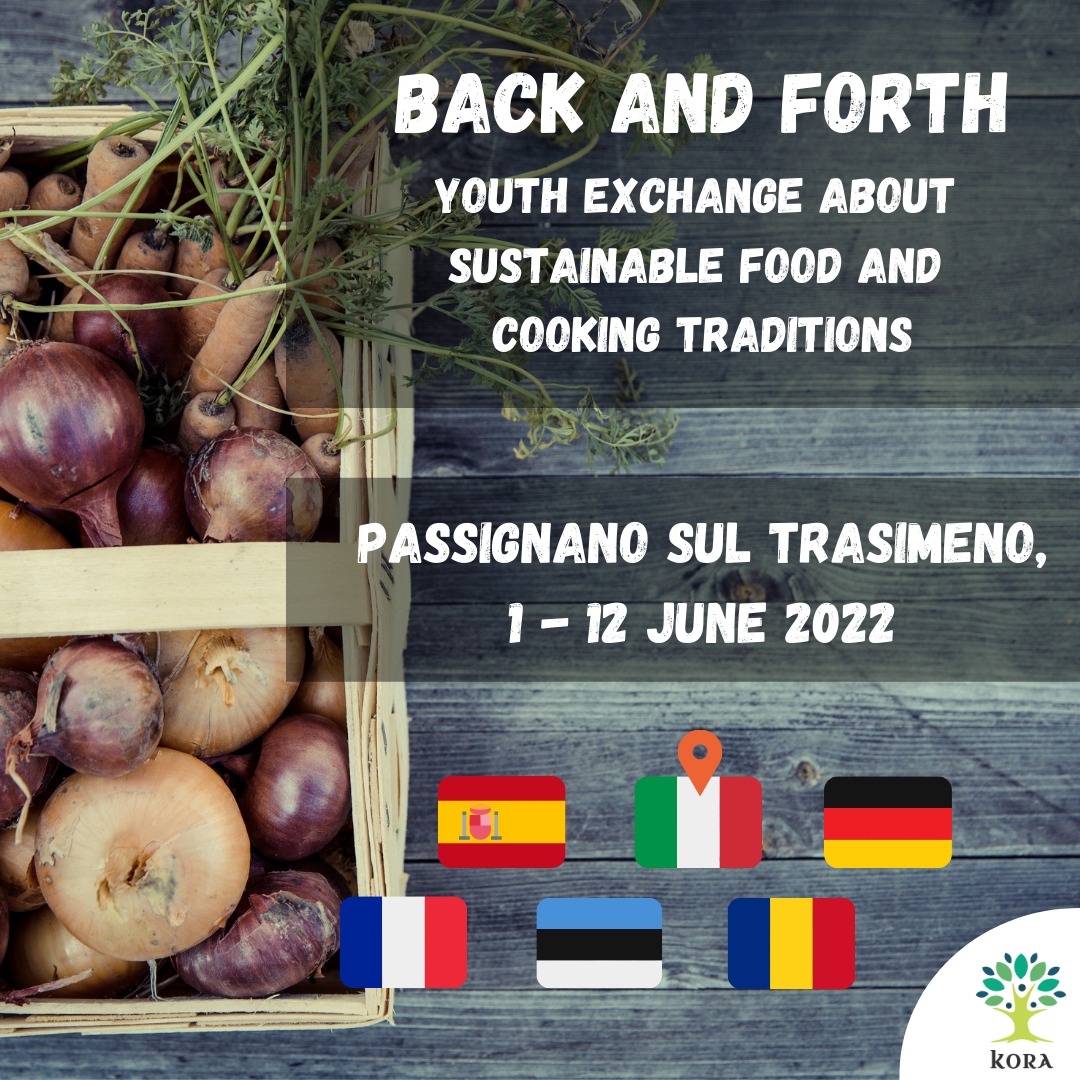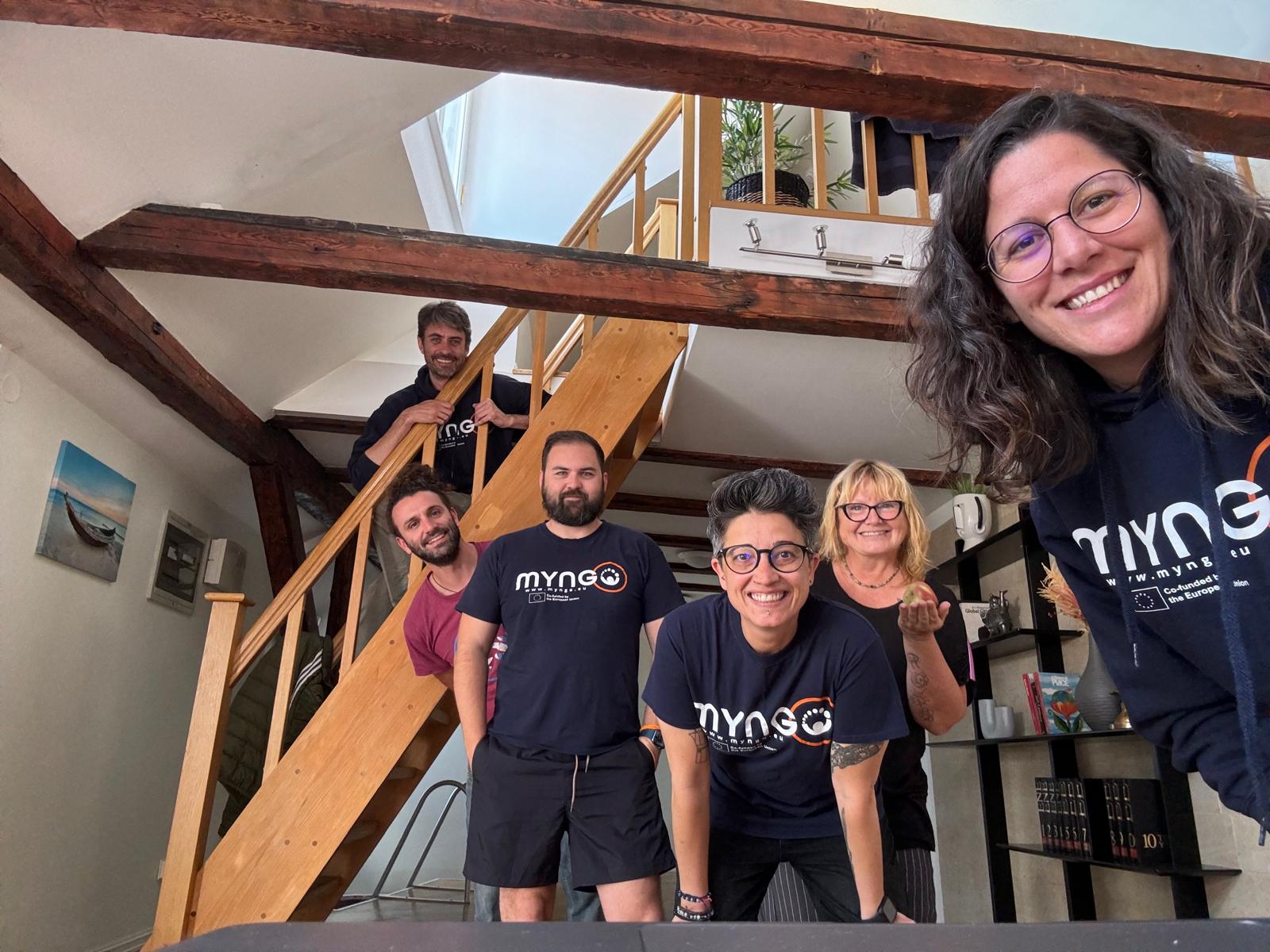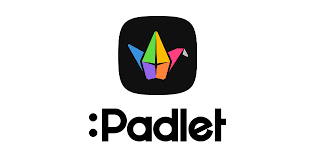“Back and Forth” is a project funded by the European Commission through the Erasmus+ programme.
The project involved 42 young people from 6 different countries in a multicultural experience. The project involved several non-formal education activities, such as cooking workshops, debates and intercultural learning activities. That is where the project acts: create a safe environment where people with different backgrounds, cultures and points of view can share experiences, learn and appreciate the process.
All the material in this article was produced by participants during the project.

Objectives of the project are:
- Provide participants with knowledge about food choices and their impact on environment
- Share and increase awareness about national/regional traditions of participating countries
- Investigate the concept of cultural identity and its connection to food traditions
- Promote the introduction of environmental sustainability in traditional recipes and meals
- Provide practical cooking skills to participants
- Raise awareness on differences and similarities of participating countries’ cultures and traditions
- Provide young Europeans tools to reduce their impact on the environment through food choices

In few words
As sustainable food habits and inclusion are core values at Kora, we decided to investigate more on these questions with a questionnaire. The questionnaire triggered the interest of many young people and was filled out by 92 people from different European countries. We noticed that a first reaction for many when choosing a more sustainable diet is looking elsewhere, at food from other countries which are traditionally vegan or vegetarian, while neglecting adaptation of their own culinary culture. Thanks to this investigation we realised which are the core issues regarding the relationship between environmental sustainability and culture/traditions. The project involved several non-formal education activities, such as cooking workshops, debates and intercultural learning activities.

The cookbook
One of the major outcomes of the project is the production of a cookbook where to find the recipes participants cooked during the project. In the cookbook you can find both traditional recipes and sustainable ones, as one of the main goal it was to renovate traditional recipes to lower their impact on the environment.
We are proud to present here the final version of the cookbook created by participants! 👇
Feel free to use it, share it, and ❤️ it!






